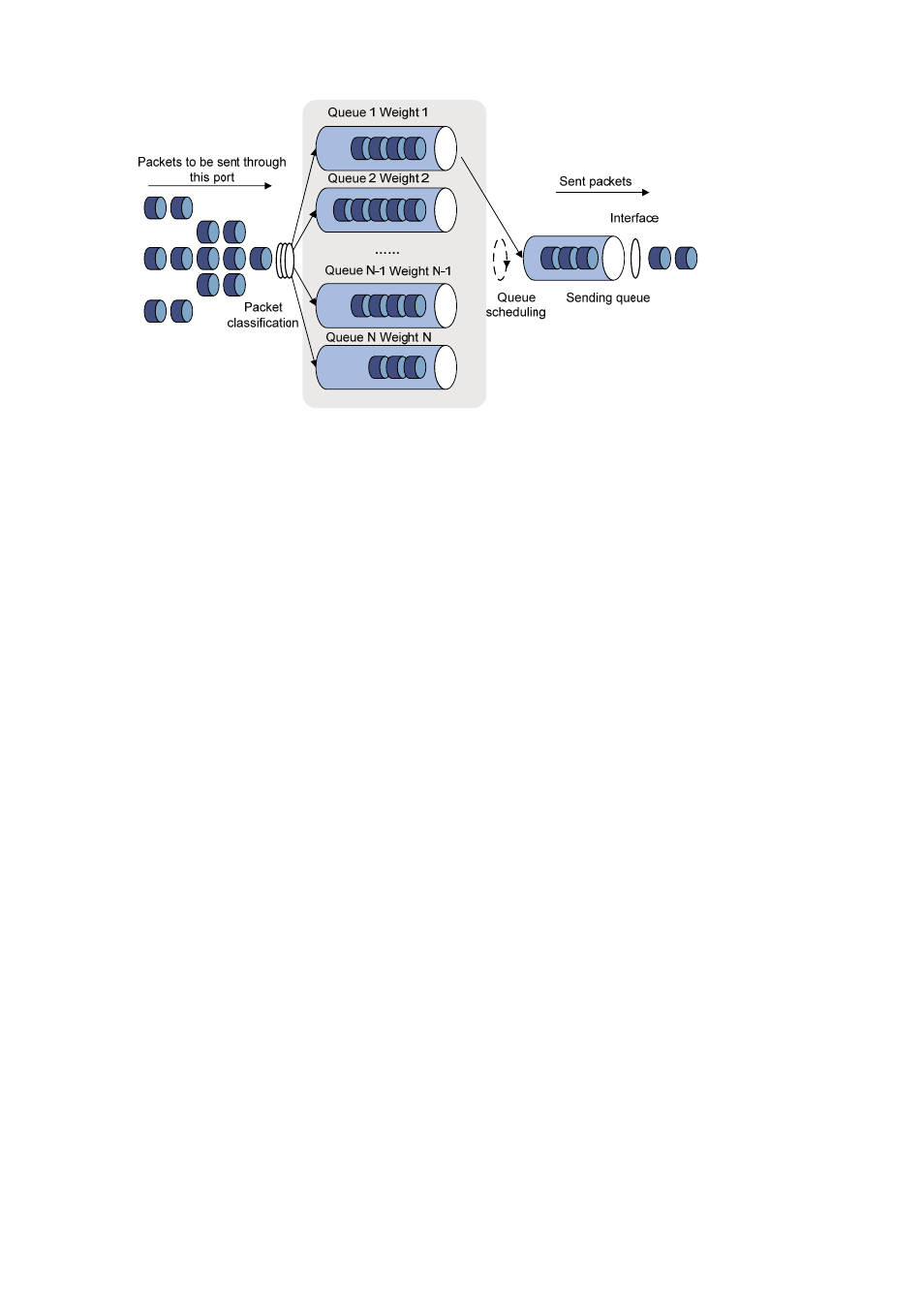Congestion avoidance, Traditional packet dropping policy, Wred – H3C Technologies H3C S3600 Series Switches User Manual
Page 742: Refer to

1-12
Figure 1-8 Diagram for WRR queuing
WRR queue-scheduling algorithm schedules all the queues in turn and every queue can be assured of
a certain service time.
In a typical H3C switch there are eight output queues on each port. WRR configures a weight value for
each queue, for example: w7, w6, w5, w4, w3, w2, w1, and w0 respectively for queue 7 through queue
0. A weight value indicates the proportion of resources available for a queue. On a 100-Mbps port,
configure the weight value of WRR queue-scheduling algorithm to 5, 5, 3, 3, 1, 1, 1, and 1
(corresponding to w7, w6, w5, w4, w3, w2, w1, and w0 in order). In this way, the queue with the lowest
priority can get 5 Mbps (100 Mbps × 1/(5+5+3+3+1+1+1+1)) bandwidth at least, and the disadvantage
of SP queue-scheduling that the packets in queues with lower priority may not get service for a long time
is avoided. Another advantage of WRR queue is that: though the queues are scheduled in order, the
service time for each queue is not fixed; that is to say, if a queue is empty, the next queue will be
scheduled. In this way, the bandwidth resources are made full use.
Congestion Avoidance
Congestion may cause network resource unavailable and thus need to be prevented. As a type of flow
control mechanism, congestion avoidance aims to relieve network load through traffic adjusting. With
congestion avoidance configuration performed, packets are dropped in advance when the utilization of
certain network resources (such as output queues or buffer created in the memory) reaches certain
degree.
Traditional packet dropping policy
Tail drop is adopted in traditional packet drop policies. It drops all the newly arrived packets when the
current queue length reaches a specific value.
Such a policy will result in global TCP connection synchronization. If a queue drops packets of multiple
TCP connections simultaneously, the TCP connections will turn to the state of congestion avoidance
and slow startup for the traffics to be regulated. The traffic peak will then occur in a certain future time.
Consequently, the network traffic jitters all the time.
WRED
You can use weighted random early detection (WRED) to avoid global TCP session synchronization.
